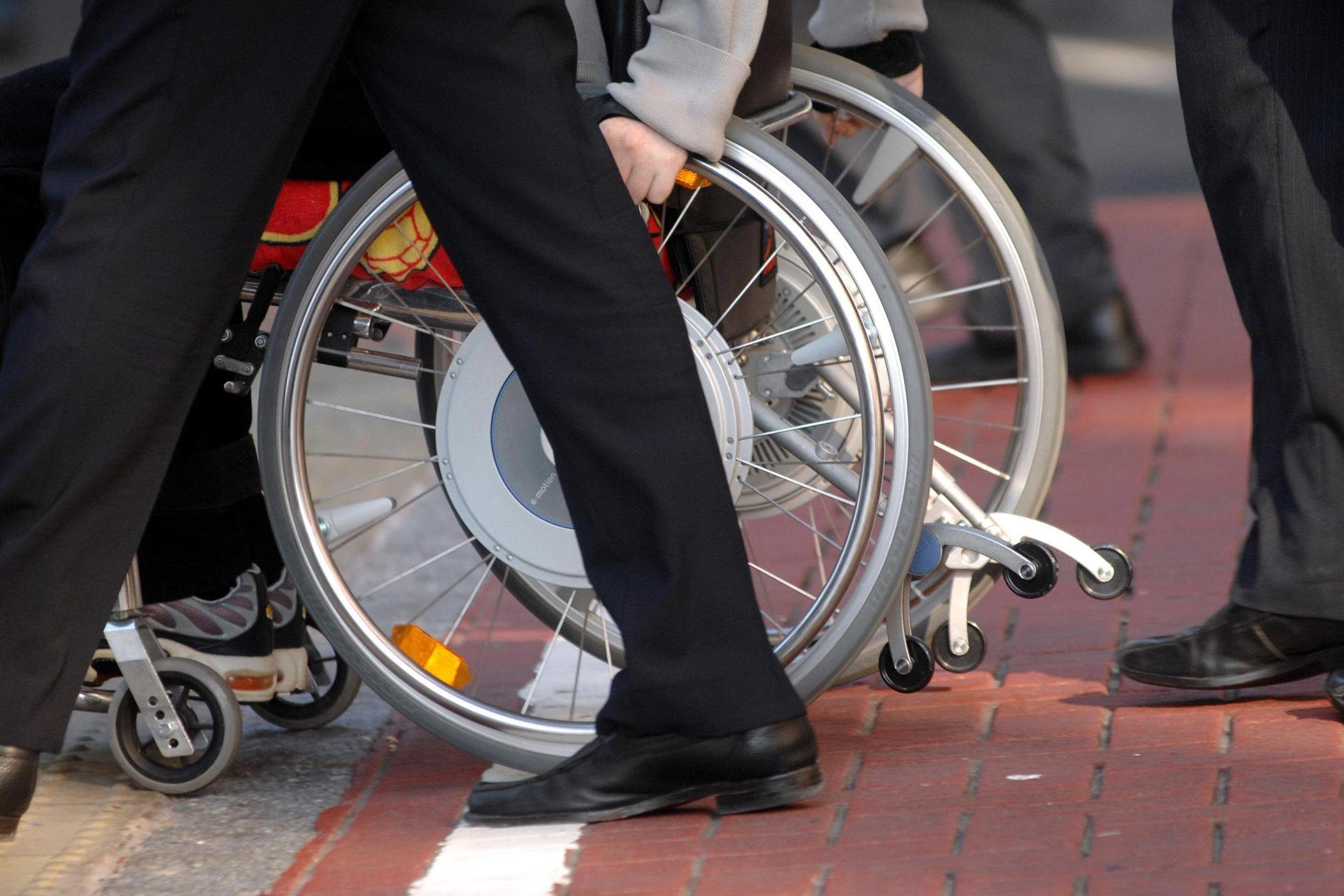Equalities watchdog expresses concerns for disabled over benefits reforms
The Government’s proposals are part of a post-pandemic drive to encourage more people with long-term conditions and disabilities into the workplace.

Your support helps us to tell the story
From reproductive rights to climate change to Big Tech, The Independent is on the ground when the story is developing. Whether it's investigating the financials of Elon Musk's pro-Trump PAC or producing our latest documentary, 'The A Word', which shines a light on the American women fighting for reproductive rights, we know how important it is to parse out the facts from the messaging.
At such a critical moment in US history, we need reporters on the ground. Your donation allows us to keep sending journalists to speak to both sides of the story.
The Independent is trusted by Americans across the entire political spectrum. And unlike many other quality news outlets, we choose not to lock Americans out of our reporting and analysis with paywalls. We believe quality journalism should be available to everyone, paid for by those who can afford it.
Your support makes all the difference.The equalities watchdog has written to the Government to raise concerns about the potential impact on disabled people of proposed changes to the test aimed at establishing someone’s ability to work.
The Equality and Human Rights Commission (EHRC) said next week’s deadline on a consultation on changes to the Work Capability Assessment must be extended to allow more time for responses.
Last month, Work and Pensions Secretary Mel Stride told Parliament of the Government’s proposals to change the assessment – which is the test used to decide how much a disability or illness limits someone’s ability to work.
We encourage you to extend the consultation deadline and to publish detailed analysis of the potential impacts of the proposals on disabled people and other protected characteristic groups to inform consultation responses
The new proposals are part of a post-pandemic drive to encourage more people with long-term conditions and disabilities into the workplace, following a £2 billion investment announced by ministers earlier this year.
Mr Stride said those with disabilities could be given more help to work from home as part of plans to reduce the numbers claiming sickness benefits, with proposals including those with health conditions which have kept them out of work “given the right support and opportunities to move off benefits and towards the jobs market”.
But charities representing disabled people have already raised fears about the potential impacts, saying the changes could force people into work when they are not well enough.
Now, the EHRC chairwoman Baroness Kishwer Falkner has written directly to Mr Stride to voice the commission’s worries, and to state she would like to meet him to discuss them “as a matter of urgency”.
She said the organisation has concerns that the consultation period – from September 5 to October 30 – “is insufficient to enable disabled people and their representative organisations to respond meaningfully”.
The chairwoman added that the published consultation materials “do not include any analysis of the potential impact of the proposed changes on disabled people or other protected characteristic groups”.
Baroness Falkner said groups in the sector had raised concerns that changes, “in particular the proposal to amend the ‘substantial risk’ criteria, could place disabled people at increased risk of both financial and psychological harm, with potentially serious equality and human rights implications”.
She said: “We encourage you to extend the consultation deadline and to publish detailed analysis of the potential impacts of the proposals on disabled people and other protected characteristic groups to inform consultation responses.
“I would welcome the opportunity to meet with you to discuss this further as a matter of urgency.”
The Government has insisted it aims to support people rather than pushing them beyond what they are capable of.
A spokesperson for the Department for Work and Pensions said: “We are determined to make sure that no-one who is able to work misses out on that life-changing opportunity.
“That is why we are consulting on changes to the Work Capability Assessment as part of the next generation of welfare reforms, which also include an extra £2 billion to support those with health conditions and disabilities to get into and stay in work.
“We have undertaken extensive engagement throughout the consultation period, including 14 public events – of which six were in-person and eight virtual – and will take the time to ensure any subsequent changes are implemented carefully.”